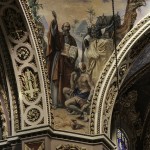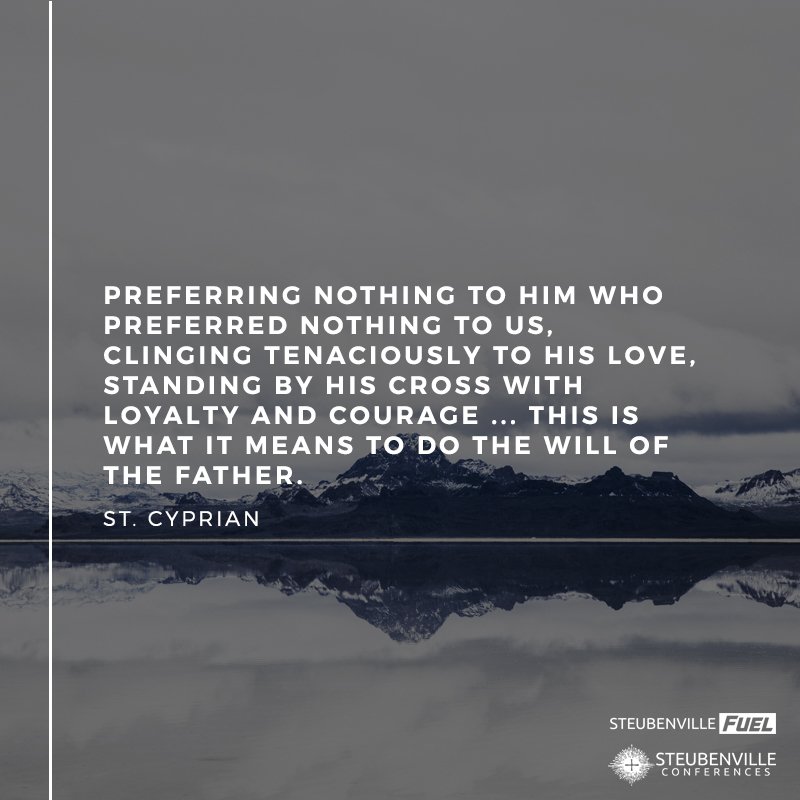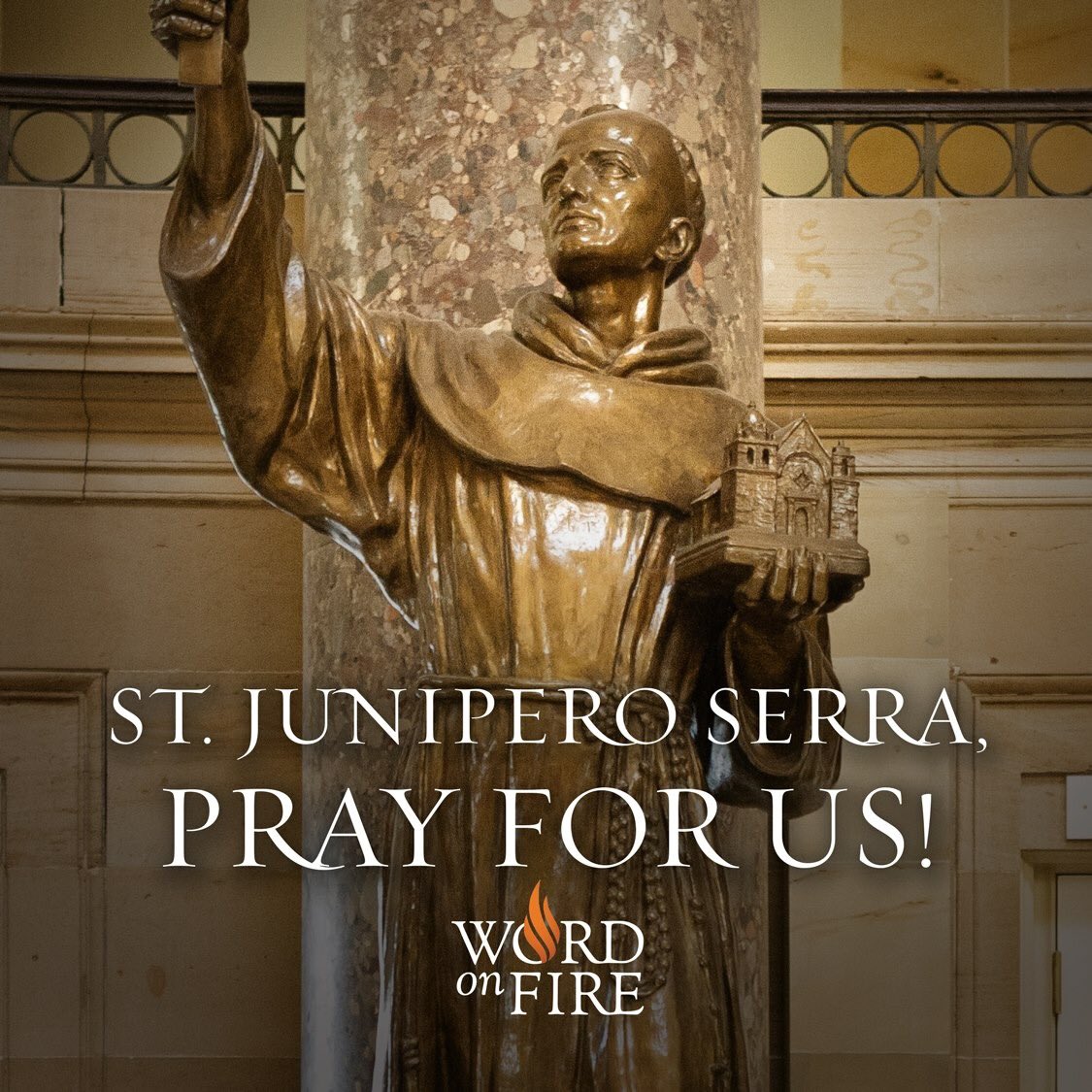1.
In Israel, I found that the chapel nextdoor to the Church of the Nativity is dedicated to… St George! #StGeorgesDay pic.twitter.com/MpGusyCk2Q
— Tim Stanley (@timothy_stanley) April 23, 2015
2. If you missed St. George’s Day yesterday, some items here.
3.
Great #MorningRead for Friday & start of weekend! Pray for us St. Mark. #Catholic @kathrynlopez @SrHelenaBurns https://t.co/70q0G1s9z8
— Kevin Schnieder (@SF605) April 24, 2015
4. From Fr. Roger J. Landry’s homily today:
After the multitude of his disciples had abandoned him, after he had seen the response of those who didn’t believe and the one who would betray him, Jesus turned to the other members of the twelve and asked, “Do you also want to leave?” It was a question coming from the depth of Jesus’ disappointment, which itself was coming out of the depth of his love for those who were abandoning him in droves, because they thought that his total gift of himself to us in the Eucharist was, rather than the greatest example of divine love, an example of human insanity. But St. Peter shows us what real faith is. Peter replied, “Lord, to whom shall we go? You have the words of eternal life. We have come to believe and know that you are the Holy one of God.” Jesus’ teaching wasn’t any easier for Peter than for the many disciples who had just abandoned Jesus. He wouldn’t understand what Jesus was saying until a year later when he during the Last Supper would totally change bread and wine into his body and blood. But he knew that Jesus had the words of eternal life and so, because of his faith in Jesus, he put his faith in Jesus’ words. Likewise, our Eucharistic faith is based on our faith in Jesus’ words. In the great Eucharistic Hymn, Adoro Te Devote, written by St. Thomas Aquinas, we sing, “I belief whatever the Son of God has said. Nothing is truer than the Word of truth!” Eucharistic miracles can help buttress our faith in the Eucharist, but they can’t substitute for it. We believe that what we’re about to receive is Jesus’ body and blood because Jesus told us that it was and sent out the apostles from the Upper Room with the command to do this in his memory.
5. Today is the feast day of Saint Fidelis of Sigmaringen, Priest and Martyr; from the Liturgy of the Hours today:
Pope Benedict XIV praised Fidelis as a confessor of the Catholic faith in these words: “He practiced the fullness of charity in bringing consolation and relief to his neighbors as well as strangers. With a father’s love he embraced all those who were in trouble. He supported great numbers of poor people with the alms he had collected from every quarter.
“With wealth collected from the powerful and from princes, he comforted widows and orphans in their loneliness. He was always helping prisoners in their spiritual and bodily needs. He showed constant zeal in visiting and comforting the sick whom he would win back to God and prepare for their last struggle.
“The most outstanding example of this meritorious way of life occurred when the Austrian army, stationed in the area of Raetia, was almost totally destroyed by an epidemic. To show compassion he used to bring food for the weak and the dying.”
In addition to this charity, he was faithful in truth as well as in name. His zeal for defending the Catholic faith was unsurpassed and he preached it tirelessly. A few days before he shed his blood to bear witness to his preaching, he gave his last sermon. These are the words he left as a testament: “O Catholic faith, how solid, how strong you are! How deeply rooted, how firmly founded on a solid rock! Heaven and earth will pass away, but you can never pass away. From the beginning the whole world opposed you, but you mightily triumphed over everything. This is the victory that overcomes the world, our faith. It has subjected powerful kings to the rule of Christ; it has bound nations to his service.
“What made the holy apostles and martyrs endure fierce agony and bitter torments, except faith, and especially faith in the resurrection?
“What is it that today makes true followers of Christ cast luxuries aside, leave pleasures behind, and endure difficulties and pain? It is living faith that expresses itself through love. It is this that makes us put aside the goods of the present in the hope of future goods. It is because of faith that we exchange the present for the future.”
6.
On Praying for a Deep Hatred and Fear of Sin and Its Darkness http://t.co/U41K23ZOD2 via @sharethis
— Charles Pope (@MsgrPope) April 24, 2015
7. There’s a website for the upcoming year of mercy.
8. And a Twitter account:
Mary, Mother of Sorrows, help us to understand God’s will in moments of great suffering.
— Jubilee.va (@Jubilee_va) April 19, 2015
9. St. Augustine: “This bread reminds you how much you ought to love unity.” More here.
10. Pope Francis:
this would be a good assignment to do at home, to consider: ‘When have I really felt that the Lord was close to me? When have I felt the need to change my life, or to become better, or to forgive someone? When have I felt the Lord asking something of me? When have I encountered the Lord?’ Because our faith is an encounter with Jesus. This is the foundation of our faith: I have encountered Jesus, as Saul did.”












